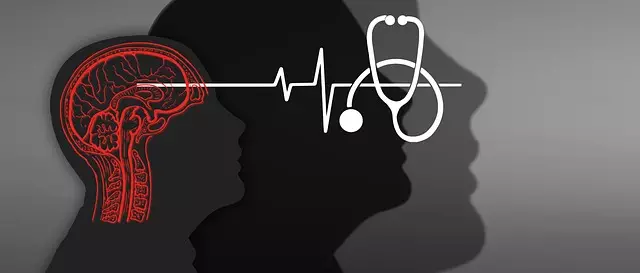Mental illness stigma prevents Northglenn residents from seeking necessary therapy, like that offered by Kaiser. Educational initiatives and accessible services from Kaiser reduce this barrier, promoting a supportive community environment for mental well-being. Patient stories humanize mental illness and encourage help-seeking. Community engagement and open dialogues foster normalcy around mental health, making it easier for individuals to access quality therapists in Northglenn.
Mental illness stigma is a significant barrier to treatment, often deterring individuals from seeking help. This article explores comprehensive efforts to reduce mental health stigma, focusing on strategies that have proven effective in fostering understanding and acceptance. We delve into the impact of stigma, highlighting the importance of accessible therapy, as seen at Kaiser Northglenn, where quality care can make a profound difference. Additionally, patient stories and community engagement play pivotal roles in breaking down stereotypes, ultimately leading to a more supportive society for those battling mental illness.
- Understanding Stigma: Its Impact on Mental Health Seekers
- Kaiser Northglenn: Therapist Quality and Accessibility
- Breaking Barriers: Effective Strategies for Stigma Reduction
- Patient Stories: Sharing to Empower and Educate
- Community Engagement: Collective Efforts for Change
Understanding Stigma: Its Impact on Mental Health Seekers

Stigma surrounding mental illness can have a profound impact on individuals seeking help, often deterring them from pursuing necessary treatment. This societal bias, characterized by negative attitudes and beliefs about mental health conditions, can lead to discrimination and marginalization of those affected. When someone feels stigmatized, they may hesitate to disclose their struggles or seek professional support, fearing judgment or loss of privacy. Such barriers can significantly delay access to care, negatively affecting a person’s overall well-being.
For instance, consider individuals in Northglenn seeking therapy through Kaiser. The perception of mental illness as a sign of weakness or personal failure might discourage them from enrolling in treatment programs. Building empathy and raising awareness about the nature of mental health challenges are crucial steps in stigma reduction. Educational initiatives that focus on accurate information can dispel myths and foster understanding, encouraging a supportive environment where those with mental health concerns feel welcomed and accepted, ultimately facilitating their journey towards recovery, mood management, and conflict resolution techniques.
Kaiser Northglenn: Therapist Quality and Accessibility

In Northglenn, Kaiser stands out for its commitment to providing quality mental health services. The healthcare provider boasts a diverse and well-trained therapist roster, ensuring patients have access to professionals equipped to handle various mental health concerns. This focus on therapist quality is a significant step towards reducing the stigma associated with seeking therapy, as it emphasizes that mental health support is accessible and effective.
Beyond individual therapy, Kaiser Northglenn offers specialized programs and initiatives aimed at fostering a supportive environment for mental well-being. Their efforts in Mental Health Policy Analysis and Advocacy play a crucial role in shaping community attitudes towards mental illness. Additionally, the integration of Conflict Resolution Techniques within their services equips both patients and therapists with tools to navigate challenges, ensuring a more productive therapeutic experience. Public Awareness Campaigns Development is another strategic aspect, aiming to educate the Northglenn community about mental health issues, thereby fostering understanding and reducing prejudice.
Breaking Barriers: Effective Strategies for Stigma Reduction

Breaking barriers to mental health support is a crucial aspect of Mental Illness Stigma Reduction Efforts, and organizations like Kaiser in Northglenn are leading the way. By providing accessible and high-quality therapy, they ensure that folks struggling with mental health issues can find the help they need without the added stress of finding competent professionals. This accessibility plays a significant role in fostering open conversations about mental wellness.
Additionally, Risk Management Planning for Mental Health Professionals is an effective strategy to mitigate stigma. Training sessions and workshops focused on stress management can empower therapists to create safe, supportive environments. These initiatives, coupled with public education campaigns, contribute to a better understanding of mental illness, ultimately reducing the barriers faced by individuals seeking treatment. The goal is to normalize conversations around mental health, making it easier for those in need to access Stress Management Workshops Organization and receive the care they deserve.
Patient Stories: Sharing to Empower and Educate

Sharing patient stories is a powerful tool in the battle against mental illness stigma. When individuals openly discuss their personal experiences with conditions like depression, anxiety, or bipolar disorder, they contribute to a more nuanced understanding among the general public. This act of sharing can empower both patients and those around them, fostering empathy and breaking down barriers. By hearing about the challenges and triumphs of others, people struggling with mental health issues may feel less alone, encouraging them to seek help.
These narratives not only educate but also humanize mental illness, challenging societal perceptions. When communities in Northglenn and beyond hear real-life accounts of successful mood management and positive thinking strategies, they gain insights into the effectiveness of various Mental Health Education Programs Design. Such open dialogues can lead to increased support for those affected, leading many to consider Kaiser’s well-regarded therapists for personalized care.
Community Engagement: Collective Efforts for Change

Community engagement plays a pivotal role in mental illness stigma reduction. By fostering open dialogues and promoting understanding, communities can dispel misconceptions surrounding mental health issues. This collective effort involves educational programs, support groups, and collaborative initiatives between local businesses, schools, and healthcare providers. Encouraging conversations about mental well-being in public spaces and online forums helps normalize discussions around topics like anxiety relief and stress reduction methods.
In Northglenn, for instance, there’s a growing recognition of the importance of addressing mental health challenges head-on. Organizations and individuals are joining forces to create supportive environments that encourage self-care routine development for better mental health. These initiatives not only improve access to therapy services, such as those offered by reputable providers like Kaiser, but also equip folks with tools and resources needed to manage their well-being. Through collective actions, communities can make a significant impact in reducing stigma and fostering a more inclusive society that prioritizes mental health awareness.
Mental illness stigma reduction is a multifaceted approach that involves understanding its profound impact on those seeking mental health services. Organizations like Kaiser Northglenn play a crucial role by ensuring high-quality, accessible therapy. Effective strategies, such as sharing patient stories and fostering community engagement, can further break down barriers. By recognizing the importance of these efforts, we can create a more inclusive society that supports mental well-being for all, without judgment or stigma. This collective change is essential to ensuring folks receive the care they need, when they need it, just like finding good therapists in Northglenn through Kaiser.






